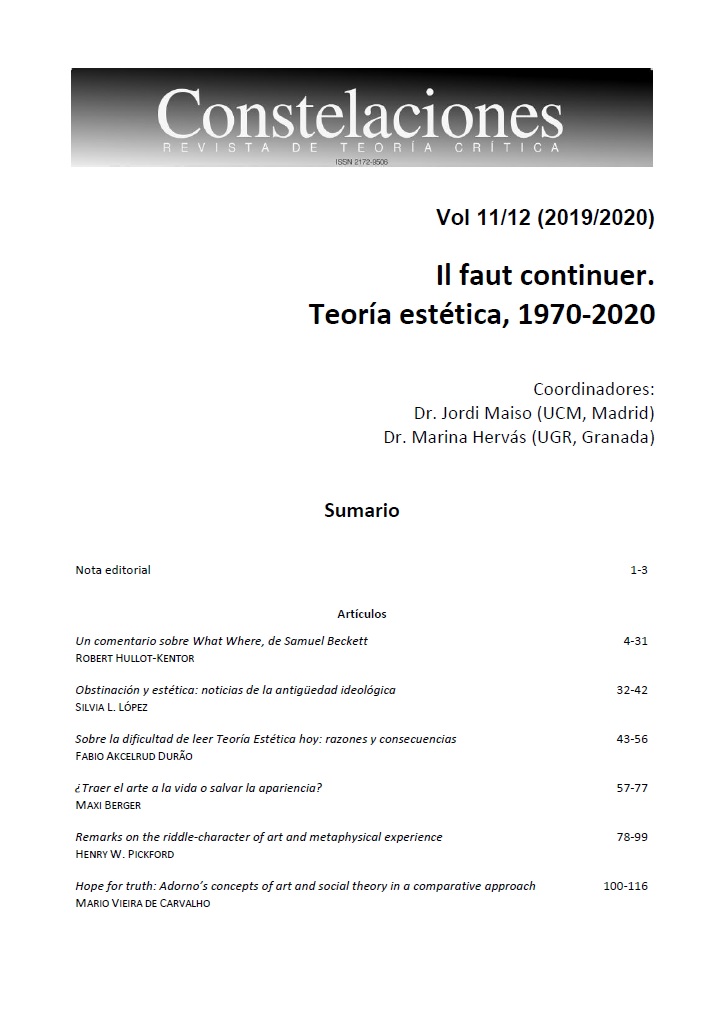Remarks on the Riddle-Character of Art and Metaphysical Experience
Keywords:
Theodor W. Adorno, metaphysics, philosophical aesthetics, experience, KantAbstract
This essay attempts through extended textual exegesis to clarify two fundamental concepts in late Adorno’s metaphysical and philosophical-aesthetic writings respectively: “metaphysical experience” and the “riddle-character” of art. The first part of the essay explores how in Negative Dialektik Adorno reworks certain Kantian themes to provide an account metaphysical experience as the exercise of the mind’s capacity for thinking beyond the immanently given that brings happiness despite failing to attain the absolute. The second part of the essay interprets concepts from Ästhetische Theorie and related writings, including the internal/external, performative/cognitive perspectives on the artwork, and its similarity to language, to show how the riddle-character of art elicits an experience similar to metaphysical experience, in that it demonstrates the ability of mind to reach beyond its cognitive self-limitations into a response-dependent objectivity with utopian implications.
Downloads
Downloads
Published
How to Cite
Issue
Section
License
Authors who have publications with this journal accept the following terms:
1. Authors will retain their copyright and grant the journal the right of first publication of their work, which will be simultaneously subject to the License of recognition of Creative Commons CC BY-NC-SA 4.0 that allows third parties to share, redistribute and adapt the work provided it is for non-commercial purposes and its author and first publication in this journal is indicated.
2. Authors may adopt other non-exclusive distribution license agreements for the version of the published work (e.g., depositing it in an institutional electronic archive or publishing it in a monographic volume) provided that the initial publication in this journal is indicated.
3. Authors are permitted and encouraged to disseminate their work via the Internet (e.g., in institutional telematic archives or on their website) before and during the submission process, which can produce interesting exchanges and increase citations of the published work. (See The Effect of Open Access).
Data confidentiality
1. Constelaciones. Revista de Teoría Crítica guarantees that the data you send us will only be used to meet the requests made in this message.
2. Your data will not be passed on to third parties.
3. You may request that your data be removed from our records at any time.





